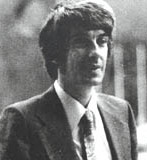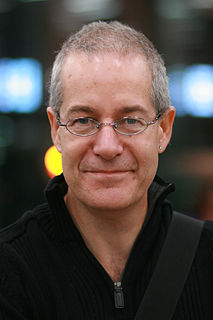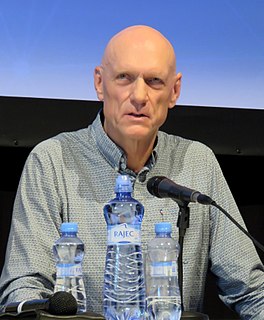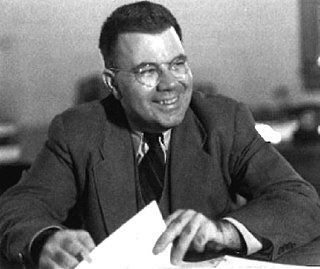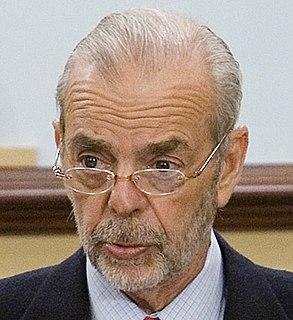A Quote by Jacques Vallee
Skeptics, who flatly deny the existence of any unexplained phenomenon in the name of 'rationalism,' are among the primary contributors to the rejection of science by the public. People are not stupid and they know very well when they have seen something out of the ordinary. When a so-called expert tells them the object must have been the moon or a mirage, he is really teaching the public that science is impotent or unwilling to pursue the study of the unknown.
Related Quotes
In no other field of scientific endeavor do otherwise intelligent people feel free to make public claims based on prejudice and ignorance. Yet in relation to psychic phenomena, committed materialists feel free to disregard the evidence and behave irrationally and unscientifically, while claiming to speak in the name of science and reason. They abuse the authority of science and bring rationalism into disrepute.
The whole point of science is that most of it is uncertain. That's why science is exciting--because we don't know. Science is all about things we don't understand. The public, of course, imagines science is just a set of facts. But it's not. Science is a process of exploring, which is always partial. We explore, and we find out things that we understand. We find out things we thought we understood were wrong. That's how it makes progress.
We humans have had from time unknown the compulsion to name things and thus to be able to deal with them. The name we give to something shapes our attitude toward it. And in ancient thought the name itself has power, so that to know someone's name is to have a certain power over him. And in some societies, as you know, there was a public name and a real or secret name, which would not be revealed to others.
Science and vision are not opposites or even at odds. They need each other. I sometimes hear other startup folks say something along the lines of: 'If entrepreneurship was a science, then anyone could do it.' I'd like to point out that even science is a science, and still very few people can do it, let alone do it well.
Economics is a theoretical science and as such abstains from any judgement of value. It is not its task to tell people what ends they should aim at. It is a science of the means to be applied for attainment of ends chosen, not, to be sure, a science of the choosing of ends. Ultimate decisions, the valuations and the choosing of ends, are beyond the scope of any science. Science never tells a man how he should act; it merely shows how a man must act if he wants to attain definite ends.
From a personal perspective, because I'm on a watchlist and went through years of trying to find out why, of having the government refuse to confirm or deny the very existence of such a list, it's so meaningful to have its existence brought into the open so that the public knows there is a watchlist, and so that the courts can now address the legality of it. I mean, the person who revealed this has done a huge public service and I'm personally thankful.
Nothing can be more striking to one who is accustomed to the little inclosures called public parks in our American cities, than the spacious, open grounds of London. I doubt, in fact, whether any person fully comprehends their extent, from any of the ordinary descriptions of them, until he has seen them or tried to walk over them.
Climate change is so big that people who study it.. and many do.. need to speak to it. They must present scientific papers, they must appear in public, they must speak to the media and we must hear their voices. In order to get policy right, policymakers.. governments.. need to make decisions based on sound science.
There has come about a general public awareness that America is not automatically, and effortlessly, and unquestionably the leader of the world in science and technology. This comes as no surprise to those of us who have watched and tried to warn against the steady deterioration in the teaching of science and mathematics in the schools for the past quarter century. It comes as no surprise to those who have known of dozens of cases of scientists who have been hounded out of jobs by silly disloyalty charges, and kept out of all professional employment by widespread blacklisting practices.
Education is here placed among the articles of public care, not that it would be proposed to take its ordinary branches out of the hands of private enterprise, which manages so much better all the concerns to which it is equal, but a public institution can alone supply those sciences which, though rarely called for, are yet necessary to complete the circle, all the parts of which contribute to the improvement of the country, and some of them to its preservation.
I think polling is the best way of gauging public opinion - doing something that's independent, that's quantitative, that doesn't give just the loud voices about how things are going; or doesn't give so called experts the notion that they know what public opinion is. I think that's what makes public opinion polling pretty important. Qualitative assessments of public opinion; going out and talking to people and understanding the nuance to what's behind the numbers. I think it's awfully important as well.
I feel like if you know any women who's an essayist or a writer or a public speaker or just a public person, and they have any presence at all in any kind of social media, or any place where men can voice at them, you have to be pretty amazed at the level of special provocation and sort of violent speech and misogyny that comes at them. Any woman that's really in the public sphere has experienced this. It's kind of shocking how universal it is.
